News / Administrative Order Allowing Curbside Operations for Medical Marijuana Treatment Centers | February 10, 2023
Administrative Order Allowing Curbside Operations for Medical Marijuana Treatment Centers | February 10, 2023
Administrative Order No. 1
Issued: September 27, 2021
Amended: January 27, 2022
Amended: June 17, 2022
Amended: December 29, 2022
Amended: February 10, 2023
Effective: February 10, 2023
Expiration: December 31, 2023, unless otherwise rescinded or amended
Medical Marijuana Treatment Centers
Administrative Order Allowing Curbside Operations for Medical Marijuana Treatment Centers
G.L. c. 94G, G.L. c. 94I
935 CMR 501.105, 501.110, and 501.140
The Cannabis Control Commission (Commission), acting through its Executive Director, issues revised Administrative Order No. 1 (Administrative Order) in response to the continuous risks to public health, safety and welfare posed by Coronavirus Disease 2019 (COVID-19), the Delta and Omnicron variants,[1] in accordance with G.L. c. 94G, G.L. c. 94I and applicable medical-use cannabis regulations, including 935 CMR 501.105: General Operational Requirements for Medical Marijuana Treatment Centers, 501.110: Security Requirements for Medical Marijuana Treatment Centers, and 501.140: Additional Operational Requirements for Patient Sales. The Commission issues this Administrative Order consistent with its statutory mandate[2] to ensure that Registered Qualifying Patients and Caregivers can safely access Medical-use Marijuana and Marijuana Products.
In compliance with this Administrative Order, licensed Medical Marijuana Treatment Centers (MTCs, and collectively, “Licensees”), may conduct sales by phone and by electronic means and may transfer Medical-use Marijuana and Marijuana Products curbside (Curbside Operations) until December 31, 2023.
The Commission, acting through its Executive Director, hereby ORDERS as follows:
- “Curbside Operations” is defined as the transfer or dispensing of Medical-use Marijuana or Marijuana Products by an MTC agent of a Licensee to a Registered Qualifying Patient or Caregiver within a vehicle located in the parking area of the licensed Premises or directly to a Registered Qualifying Patient or Caregiver at the entrance to an MTC. “Entrance” shall include an access control vestibule or air-lock entrance that is enclosed and physically separated from the retail or other functional areas of the MTC.
- As of the effective date of this Administrative Order up until its expiration on February 9, 2023, Licensees may conduct pre-orders by phone or electronic means with a Registered Qualifying Patient or Caregiver prior to the purchase and transfer of Medical-use Marijuana and Marijuana Products curbside.
- In conducting phone or electronic sales orders, MTCs shall adhere to the statutory requirements regarding patient privacy. L. c. 94I, § 3(b).
- MTCs must verify patient eligibility for product sale with the Medical use of Marijuana Online System prior to processing the transaction.
- If a Licensee completes a pre-order by phone or electronic means, the Licensee may transfer Medical-use Marijuana and Marijuana Products curbside subject to the following conditions:
- Curbside Operations shall occur on the licensed Premises outdoors and shall be located so as to minimize compromises to security, taking into consideration camera locations, foliage, or other obstructions, proximity to the MTC entrance, and similar considerations.
- All sales must occur within the MTC. This requirement is satisfied if one of the following has occurred:
- Sales occur in compliance with this Administrative Order and the Commission’s statute and regulations.
- Payment is made through one of the following means:
- by an electronic internet-based payment platform;
- by phone in a call-ahead manner;
- by a mobile payment point-of-sale (POS) system; or
- by cash within the brick-and-mortar premises entrance. Such transactions would be strictly limited to allow for the pre-arranged cash payment of the Medical-use Marijuana or Marijuana Product and should require exact change so as to minimize contact and expedite transactions to avoid lines.
- Scheduled appointments and social-distancing practices consistent with state and federal guidance are encouraged.[3]
- MTC agents shall identify the purchasing Registered Qualifying Patient or Caregiver and any accompanying individuals arriving curbside.
- MTC Agents shall verify the purchasing Registered Qualifying Patient’s or Caregiver’s age and status in accordance with 935 CMR 501.140(2)(a);
- To the extent that curbside transfer involves a vehicle, all other individuals in the vehicle must be 21 years of age or older unless the individual is a Qualifying Patient within the meaning of 935 CMR 501.002: Definitions;
- When verifying Registered Qualifying Patient and Caregiver identity and status, MTC agents are not required to physically handle an identification card if verification can be performed by visual inspection or scanning device.
- Licensees shall comply with regulatory requirements, including those pertaining to all inventory, transfer, and recordkeeping.
- To the extent that Licensees conduct Curbside Operations, these operations shall be physically located so as to enable video recording by existing video cameras pursuant to 935 CMR 501.110(5).
- In accordance with existing regulations, Licensees shall operate video cameras at all points of entry and exit of the licensed Premises and shall angle video cameras so as to allow for the identification of any individuals entering or exiting the licensed Premises and all areas where Medical-use Marijuana or Marijuana Products are handled, transferred, or dispensed.
- Licensees shall ensure that curbside transfers and if applicable, dispensing, of Medical-use Marijuana or Marijuana Products is video recorded and stored.
- Licensees conducting Curbside Operations shall notify the Commission and municipal officials prior to commencing such operations.
- MTCs conducting Curbside Operations shall submit standard operating procedures and a facility layout indicating changes to the outdoor premises to the Commission within forty-eight hours of commencing these operations. The standard operating procedures and facility layout for Curbside Operations must include the following:
- Identify designated curbside sales area(s), traffic queuing plans, and signage to direct Registered Qualifying Patients or Caregivers;
- Ensure curbside sales only occur on the licensed Premises and do not occur on public sidewalks or adjacent parking lots; and
- Ensure traffic does not overflow onto public or private property unless permission has been obtained by the municipality and/or owner.
- To the extent feasible, Licensees shall minimize the impact of Curbside Operations on municipalities.
- Licensees shall notify municipal officials, including providing a copy of the updated facility layout to municipal police and health officials;
- Curbside Operations shall not block traffic, sidewalks, or increase lines or crowds; and
- Licensees must remain in compliance with the terms of their host community agreements and all local rules, regulations, ordinances, and by-laws, including any municipal public health order.
- Licensees shall comply with any applicable orders issued by state or local authorities, including all executive orders and guidance issued by the Governor pursuant to Chapter 639 of the Acts of 1950 and by the Commissioner of the Department of Public Health pursuant to G.L. c. 17, § 2A.
- Licensees shall adhere to all regulations established in 935 CMR 501.105: General Operational Requirements for Medical Marijuana Treatment Centers, 501.110: Security Requirements for Medical Marijuana Treatment Centers, and 501.140: Additional Operational Requirements for Patient Sales for sales not explicitly addressed by this order. Licensees may seek a waiver of regulatory requirements under 935 CMR 501.850: Waivers but may not pursue exemption from the requirements described in this Administrative Order.
- Licensees shall monitor and comply with all Commission-issued guidelines and bulletins, including those establishing social distancing measures.
-
This revised Administrative Order No. 1 shall take effect on February 10, 2023, at 12:00 A.M.
This revised Administrative Order No. 1 shall remain in effect until February 9, 2023, or the date the Commission rescinds or amends this order, whichever occurs first. The Commission may amend or modify this order as applicable to one particular licensee, a group of licensees, or all Commission licensees.
Failure to comply with the above conditions may result in disciplinary action against Licensees and their agents up to and including suspension and/or revocation of licensure or registration.
Nothing herein should be construed as precluding or limiting the Commission’s authority to take additional administrative action to protect the public health, safety, and welfare.
Questions about this order may be directed in writing to the above address, by phone (774-415-0200) on Monday – Friday from 9:00 A.M. – 5:00 P.M., or by email at Commission@CCCMass.com.
Signed this 13th day of February 2023:
Commonwealth of Massachusetts Cannabis Control Commission
Shawn Collins, Executive Director
[1] https://www.cdc.gov/coronavirus/2019-ncov/variants/index.html; https://www.mass.gov/covid-19-updates-and-information.
[2] See G.L. c. 94I, § 2.
[3] https://www.cdc.gov/coronavirus/2019-ncov/variants/index.html; https://www.mass.gov/covid-19-updates-and-information.
Get Notified
Subscribe for updates from the Cannabis Control Commission.


